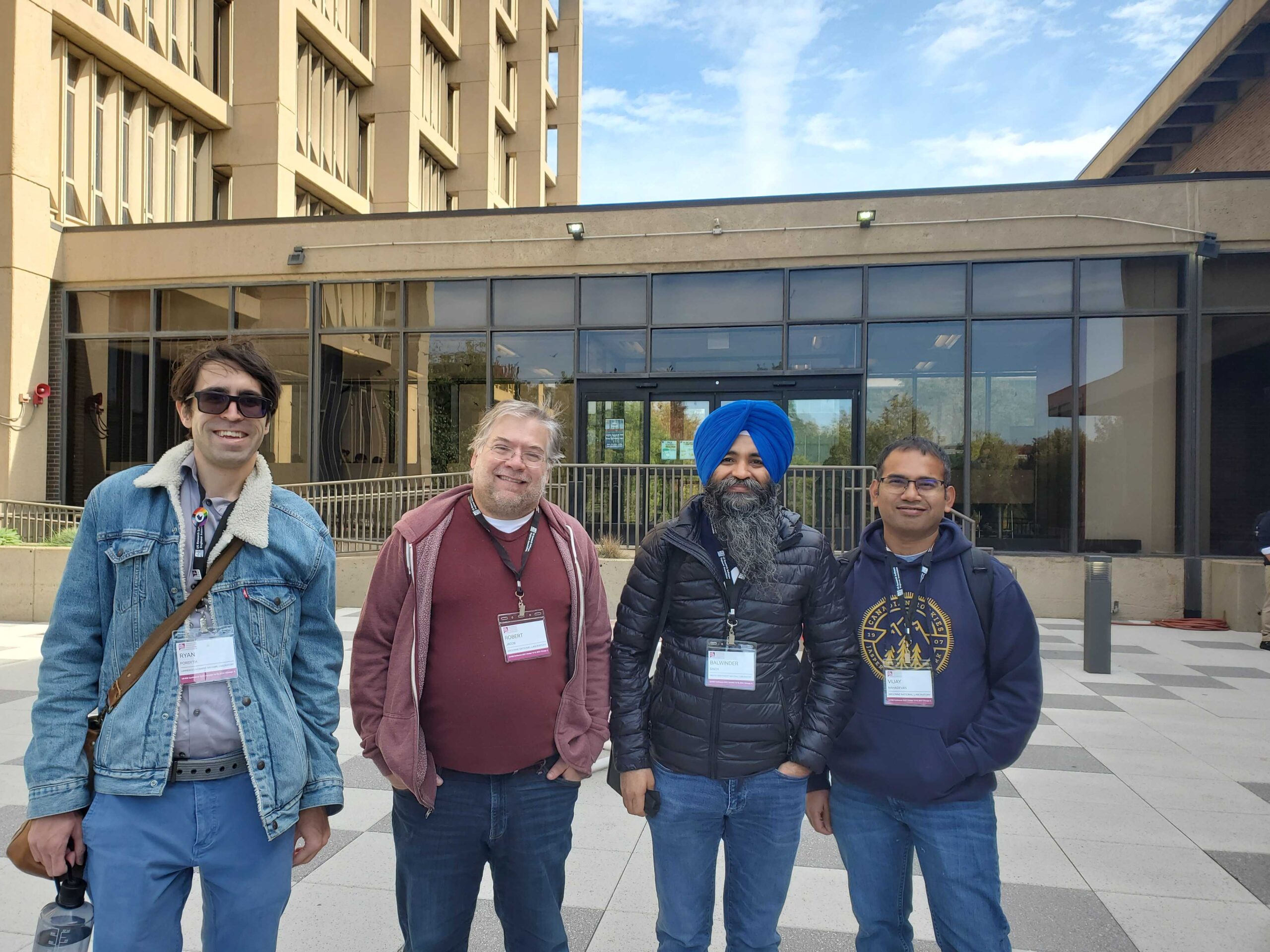Research Software Engineer Conference
The 1st Annual Conference of the US Research Software Engineer Conference (US-RSE) was held in Chicago, IL October 16-18, 2023.
The term “Research Software Engineer” (RSE) refers to software engineers who write code to support research. There are generally two routes to this career: scientists who realize they prefer writing the supporting code over writing research papers and software developers who realize they prefer working in a scientific domain. As you might imagine, E3SM relies on many RSEs, primarily found in the Infrastructure Group.
Conference sponsors included two E3SM member institutions – Sandia National Laboratories and Los Alamos National Laboratories. Additionally, four E3SM team members attended the conference (Fig. 1), representing three national labs: Rob Jacob and Vijay Mahadevan from Argonne National Laboratory, Ryan Forsyth from Lawrence Livermore National Laboratory, and Balwinder Singh from Pacific Northwest National Laboratory.
The Globus project, another sponsor, provided many talks on fully leveraging their service. Globus is cyber-infrastructure to transfer files, share files, automate data handling, and develop applications and gateways. Globus provides fast, reliable, authenticated large data transfers fundamental to handling E3SM’s simulation output. Globus is used to transfer output to other machines for easy post-processing. The zstash tool uses Globus to long-term archive output to NERSC HPSS. Globus also allows the data publication team to move large amounts of data efficiently.
The conference covered many topics, including common challenges in this nascent career category (such as difficulties properly configuring build/CI tools like conda and GitHub workflows, limitations of secure/proprietary environments, limited number of RSEs on a team and subsequent lack of mentorship, lack of funding, lack of recognition). Promoting Diversity, Equity, and Inclusion (DEI) in the field was also a major priority of the conference.
There was much discussion on how cybersecurity, software reproducibility, software quality tools (e.g., linters and formatters), and code reviews can help RSEs write better software. But it was the so-called “soft skill” of communication that was emphasized as perhaps the most important skill a RSE can have. RSEs by definition bridge the worlds of software and research, and thus need to communicate with empathy between them.
Conference speakers emphasized the need to advocate for funding the RSEs who do the important work of writing the code that the research relies on. Solutions to the recognition problem included judging performance of RSEs by their software releases rather than their publications, a process that has already been adopted by some E3SM member labs, and/or including RSEs as co-authors on publications, something E3SM already does.
Resources
This article is a part of the E3SM “Floating Points” Newsletter, to read the full Newsletter check:



